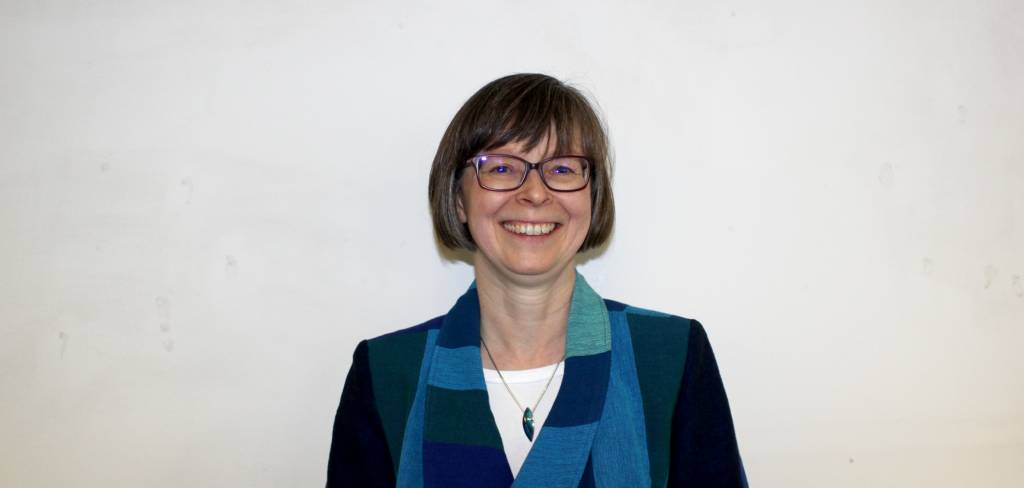We chat to outdoor play expert Claire from Creative Play, who shares how imaginative play can support early years development…
Upskill for free
Funding is always a barrier when it comes to training. NMT finds out about the free-to-access Early Years Professional Development Programme.

Keeping up to date with the latest research, policy and practice is crucial, but nursery managers often struggle to find the budget to pay for training, or to provide cover for staff while they are learning. The government-funded Early Years Professional Development Programme (EYPDP), developed by Education Development Trust (EDT), may provide a solution.
It’s not only free to access, but also offers funding to pay for cover or to pay staff overtime to engage with the learning outside work hours. Managers can claim back a maximum of £800 for each member of staff taking part in the training, which consists of 60 hours spread over eight months.
Originally launched in 2019, the first two phases of the programme were aimed at settings in the most disadvantaged parts of the UK. The third phase, which launched this year, has been made available to settings in all local authorities in England, with updated content aimed at Level 3 qualified staff, including managers.
Eligibility
Practitioners must be Level 3 qualified and delivering childcare to children between the ages of two and four, so a manager who doesn’t spend any time with children wouldn’t be eligible. Those who have completed a previous phase of the training can’t access it again. Eligible learners should also work in a setting where disadvantaged children would benefit from practitioners receiving additional CPD support.
“There are some specific deprivation criteria, but if the local authority thinks disadvantaged children in your area could benefit from you completing the training, then you can access it,” says Lyn Challender, EDT programme director.
Local authorities are charged with supporting the promotion of the course to settings, but engagement varies across the country. Some may be reluctant to promote the course because they deliver their own training, while others don’t have the time. “This is free training which everyone is entitled to access,” says Challender. “If nursery managers are finding they can’t get access, they can come to us directly and we will support in any way we can to enable them to access the programme.”
The second group of practitioners started training this month, and two more cohorts will start in January and April next year. Recruitment for January is taking place now – interested managers and practitioners can register their interest through the EYPDP website.
Content
Training covers communication and language, early mathematics and personal, social and emotional development (PSED). The evidence-based content has been created by sector experts: charity Speech and Language UK, the Anna Freud Centre, and early mathematics experts Dr Sue Gifford and Dr Catherine Gripton. It is endorsed by the Open College Network.
Topics covered in the communication and language module include understanding typical language development, achieving high-quality interactions, and embedding good communication and language into your setting. “We are seeing an increasing number of children with speech and language challenges as they go into reception,” says Carol Payne, deputy chief executive at Speech and Language UK. “It feels an absolute imperative that we are able to train as many practitioners as possible to give as many children as possible those early opportunities, especially in the disadvantaged areas.”

Speech and Language UK developed content which aligns with the EYFS curriculum and Development Matters, drawing on research into early child language development. “We support early years practitioners to see how they can follow a child’s lead and extend and shape children’s language through some really simple approaches,” says Payne.
The maths module covers counting, cardinality, measurement, pattern, shape and space, and the PSED module includes working with parents and carers, staff wellbeing and supervision strategies for managers. At the end of each module, practitioners receive mentoring support and take part in an online webinar to discuss how they will implement what they have learned.
“In order to complete the programme, practitioners have to demonstrate what strategies they are going to use to put what they have learned into their settings,” says Challender.
The programme trainers come from a diverse range of backgrounds, including former nursery managers, speech and language therapists, Ofsted inspectors, equality and inclusion advisers and early years trainers from the further education sector.
Delivery
The course combines e-learning units, which practitioners can access in their own time, and regular interactive webinars. Learners can choose a time slot which works for them. “If a manager wants to send the whole team on this course they could, because practitioners can access the learning at different times,” says Challender.
Online delivery means the groups of around 20 can include practitioners from all over the country, which encourages more open conversations. “When you bring practitioners together for local training, people are often reluctant to talk to each other. Managers don’t want their competing practitioners in a room together,” says Challender, who also has experience managing her own early years setting. “Online, someone from Newcastle can sit in a room with someone in Devon, doing the same piece of learning and they are having this really rich dialogue with each other.”
The most challenging content is delivered at the end of the course, once strong relationships have been built. “By this time they have built trust within their group so they feel more able to be honest and transparent about some of the challenges they are facing,” says Challender.
Impact
Practitioners have highlighted the positive effect the programme has had on their confidence. “One practitioner had just done the first of the maths units and the week after they had Ofsted in their setting,” says Payne. “Ofsted were feeding back how impressed they were by the practice they were seeing, because this practitioner was so much better able to articulate why she was taking a particular approach with maths
Case study: Wendy Johnson

Wendy Johnson, manager of Trinity Playcentre in Dagenham, has completed the communication and language and early mathematics EYPDP modules, and is preparing for the PSED training. “It focuses my practice on what we could do better; there were lots of things we could do differently simply by tweaking our current practice,” she says.
She feels more empowered to put her ideas into practice. Johnson likes the way she can complete the e-learning modules at her own pace, and revisit topics where necessary. “I also love the webinars, you have practitioners from all corners of England, all doing things slightly differently but all having the same agenda, which is to impact the life of the little people we look after,” she says.
The training has had an immediate effect on the nursery’s provision. “Every time I do the webinars or the e-learning, anything that catches my eye that we’re not doing in the way I have read, I adapt it and bring it in immediately. I have put a lot of what I’ve learned in my action plan for September onwards.”
Latest Features
The roll-out of new innovations doesn't always go to plan. Ben Case, education advisor at childhood education platform Tapestry, sets…
We discover how RafaKidz Medmenham transformed its outdoor space




